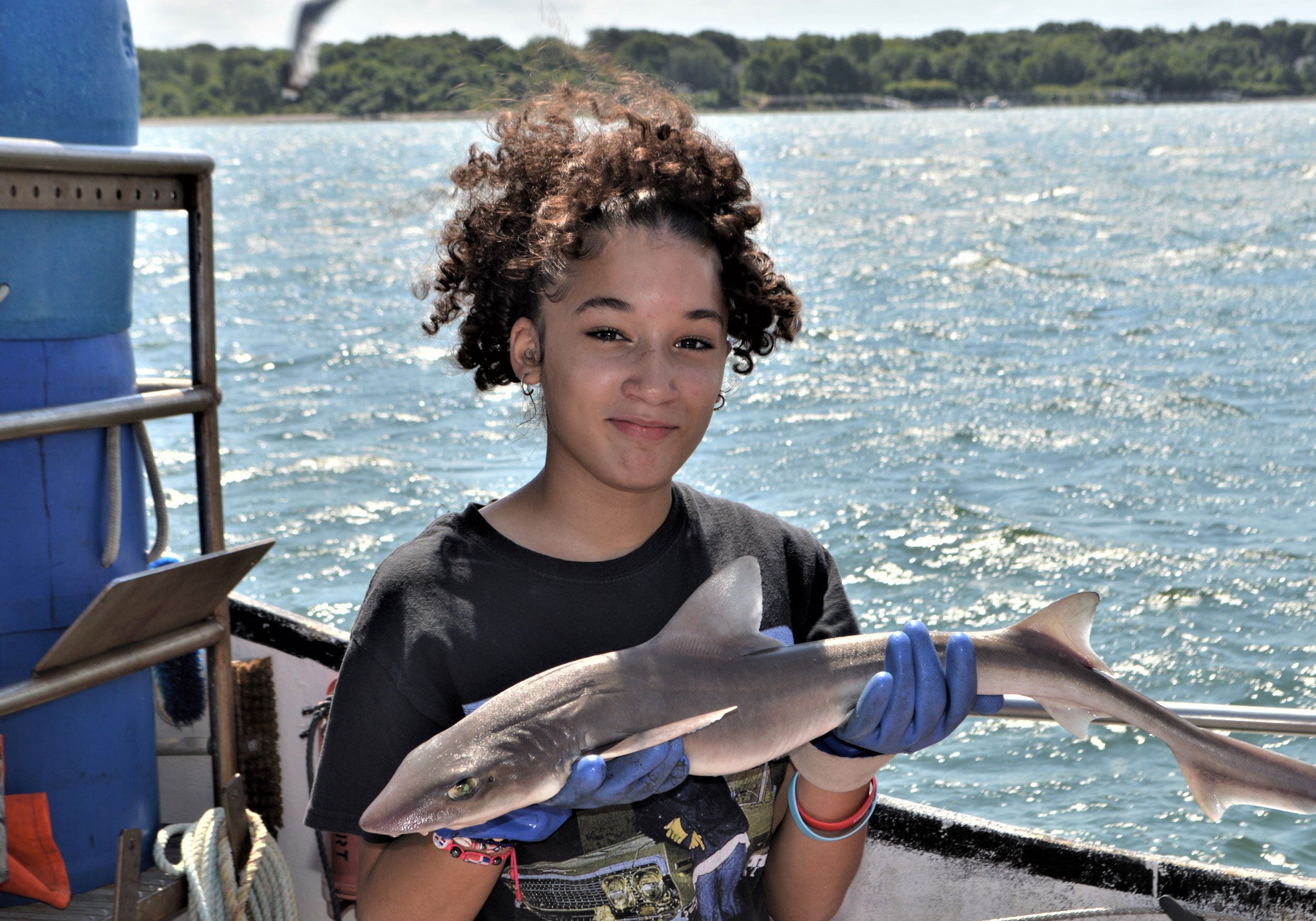
Professor Brad Wetherbee said the idea for the URI Shark Camp came to him after noticing that he wasn’t seeing a whole lot of diversity in his first-year classes.


Professor Brad Wetherbee said the idea for the URI Shark Camp came to him after noticing that he wasn’t seeing a whole lot of diversity in his first-year classes.
Wetherbee, who teaches in the Department of Biological Sciences, suspected that some diverse students didn’t have access to the experiences that might otherwise generate interest in a career in the sciences. If he could provide opportunities for urban high school students to experience ocean life, though, then perhaps some would envision a different future for themselves.
In 2018, Wetherbee offered the first free week-long Shark Camp to a group of Providence teens. He learned his assumptions were spot on.
“Some of them had never been to the ocean,” Wetherbee said. “They’d never been on a boat fishing.
“The idea was to expose them to experiences they wouldn’t get otherwise,” he said. “That’s the whole premise behind this.”
Today high school students enrolled in the nationally acclaimed Shark Camp engage in a variety of activities during the week, including a visit to Mystic Aquarium and a tour of the Center for Biotechnology and Life Sciences. The highlight of the camping experience, though, is trawling local waters for sharks and other marine life. For that, Wetherbee enlists the help of Capt. Steve Barber and the Cap’n Bert, a URI research vessel, along with URI students. This year, those students included Mitch Hazipetro, a research assistant in the URI Fisheries Center, and marine biology majors Maricarmen Serna and Deanna Torres.
Wetherbee believes the early exposure to unique experiential learning opportunities like Shark Camp may also be the first encounter most campers have had with the breadth, scope, and excitement of scientific study. “There’s no awareness of environmental science or animal veterinary science or wildlife conservation — all of these different majors that are related, including marine biology,” Wetherbee said. “So that’s the idea: to get them here with the bait of sharks and then while they’re here, they’re learning about sharks and about college.”
Shark Camp alum Mateo Munoz Gil, a chemical engineering major at URI, can attest to how powerful a lure experiential learning can be. Gil enrolled in the camp on the advice of a counselor who thought it would help the Colombia native work on his English. Gil said his Shark Camp experience was one of the best he’s ever had. “Once I came here, I fell in love with the University,” Gil said. “I’m a curious person and they had an answer for every question I had. It’s such a wonderful experience; it teaches patience, science, biology, everything.”